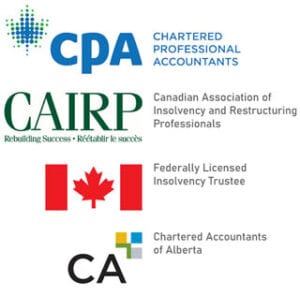FIVE KEY FACTORS TO OBTAINING CREDIT
When a person applies for credit there are five main factors that most financial institutions look at. If you have ever filled out a credit application, you will recognize most of these.
1. Job Stability: In other words, where do you work? If less than 2 or 3 years, then where
have you worked previously;
2. Residence Stability: Do you own your own home? Where do you live? If less than 2 or 3
years, what was your previous address;
3. Do you own any Assets: Do you have an asset that you can pledge as security for your loan;
4. What is your Disposable Income: What do you have left over each month after you pay
your living expenses and what size of loan payment can you make;
5. Demonstrated ability to Save: What savings do you have, do you have an RRSP, tax free savings account, rainy day fund, or investments of some kind.
If a person is self-employed, works seasonally or changes jobs quite regularly, or rents and moves around a lot, or doesn’t know where their money goes, or what you have left over every month, constantly dips into an overdraft, or has no significant assets or demonstrated savings, it is extremely unlikely that they will be able to secure a loan. If they do, it is probably based on luck or poor credit granting policies on the part of the creditor.
LATE PAYMENT AND NSF CHEQUES
The first step to improving your credit history is to open a new bank account at a different bank, and close the bank account where you have been writing NSF cheques. After doing that, it is important to take NSF cheques very seriously and avoid writing them.
Late payments or NSF cheques destroy your credit rating and most banks record every NSF cheque you have ever written on your account since it was opened. Know what is in your bank account at any given time. Remember, you can only spend each dollar one time! If you wrote a cheque, even though the money is still showing in your account, it is already spent.
WHAT IS THE IMPACT OF A BANKRUPTCY?
A Bankruptcy can impact a person’s credit rating significantly, but for most people, that is a short-term situation. What you learn from and how you act after bankruptcy and how you manage your financial affairs on a go-forward basis is the key factor in getting credit again.
Although a bankruptcy often gets the blame for a credit refusal, more often than not other factors are at play. If you don’t meet one or more of the five key factors listed above, a bankruptcy on your record only serves to make it worse, and it’s an easy excuse for a bank or creditor to say no, rather than getting into those other factors with you.
Stability of job and residence, and the proper management of your personal and financial affairs are the keys to credit worthiness and a good credit rating.
For some key steps and suggestions on how you can repair your credit rating, reference our Credit Repair webpage.



